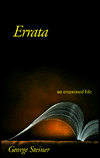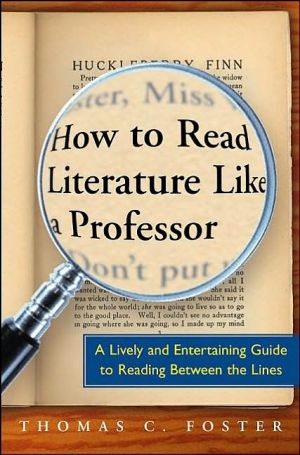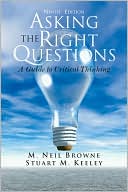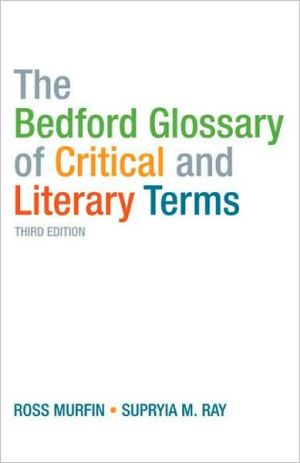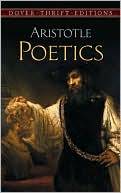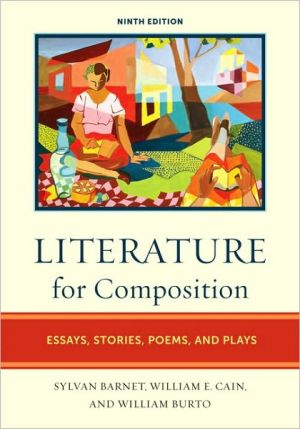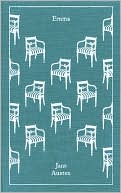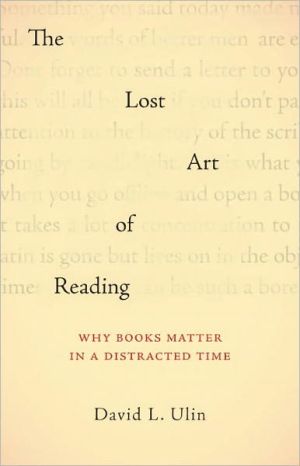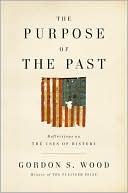Errata: An Examined Life
George Steiner, one of the great literary minds of our century, now relates the story of his own life and the ways that people, places, and events have colored the central ideas and themes of his work. His most personal book, this volume reveals Steiner's thoughts on the meaning of the western tradition and its philosophic and religious premises, his pleasure in literature and music, and his regrets about the unopened doors and untapped resources in his past. Born in Paris in 1929 of Viennese...
Search in google:
George Steiner, one of the great literary minds of our century, now relates the story of his own life and the ways that people, places, and events have colored the central ideas and themes of his work. His most personal book, this volume reveals Steiner's thoughts on the meaning of the western tradition and its philosophic and religious premises, his pleasure in literature and music, and his regrets about the unopened doors and untapped resources in his past. Born in Paris in 1929 of Viennese Jewish parents, Steiner was raised speaking German, French, and English. He was educated and an educator himself in the United States and in Europe, crossing continents and cultures over the course of this troubled century. Steiner interweaves episodes from his past with thoughts about the present: he recalls, for example, how his father introduced him to the Iliad in Greek shortly before his sixth birthday, and muses about the genius of Homer; he describes the effect of the Holocaust on his family, and explores why Jews have been persecuted and have survived over the millennium; and he takes stock of science, reason, atheism, and religion in his own life and at the end of this century.Scott McLemeeAmong the best collections of essays by a contemporary literary critic is one gathering George Steiner's work from the New Yorker over the past three decades. It's comprised of around 200 pieces: miniature dissertations on literature and philosophy (mainly European), composed while Steiner wrote his own books on tragedy, linguistics, chess, Homer, Hitler, Heidegger and other matters. At this point, I ought to mention the title of this volume -- but there's one small problem. It doesn't exist. You could assemble your own copy in the library, at the Xerox machine, with some patience and a lot of quarters. Why Steiner himself hasn't reprinted them (the way Edmund Wilson used to do every few years) is difficult to imagine. Excessive modesty does not appear to be the reason. Steiner's latest book, Errata, is a slender tribute to his own genius. It is an autobiography, of sorts. It rehearses most of the characteristic ideas and problems explored in his earlier books. But Steiner, for all his customary eloquence and learning, sounds bitter. Fellow professors have dissed and/or ignored his work, while pilfering shamelessly from his bounty. (They have been especially unkind yet kleptomaniacal about After Babel, his prodigious work on the theory of translation). And some of his protégés turned out to be ungrateful bastards. This is a self-portrait etched in acid. The slices of personal information here are few, and thin. Most readers of his earlier work will already know that Steiner was born to a German-Jewish family, and that he grew up hearing several languages and constant, familiar references to the classics of European culture. Only an accident of geography saved him from the Holocaust, a fact that weighs heavily on his mind. The sketches of his academic career are perfunctory. As for his personal life, this is the sort of memoir in which the author mentions his wife, and you think, "That's funny, he didn't say anything about getting married. I wonder if she has a name?" Evidently not. Instead, we get an anthology of brief (yet somehow rambling) essays on the questions that have defined his career. Didn't the monotheism and the ethical demands of ancient Judea place an unbearable burden of consciousness on the rest of humanity -- to which anti-Semitism has been a persistent, murderous response? A German concentration camp guard could go home at night and read Goethe -- so can we take seriously the notion that the humanities are, in any way, "humanizing"? What are we to make of the fact that there have been thousands of distinct languages -- when the existence of even one is, when you think about it, rather miraculous? Steiner has returned to these questions constantly over the years, without ever really answering them. That's OK. They are good questions. The trouble is, he's written about them more engagingly in previous books and essays -- and without such a chip on his shoulder. And in Errata, Steiner indulges, at some length, in his single most self-aggrandizing impulse: the tendency to assume a tragic posture as the Last European Intellectual, mournfully clutching a volume of Montaigne as he surveys the Nintendo ruins of postmodern culture. To admirers of Steiner (the only people likely to pick it up to begin with), Errata is bound to disappoint and embarrass. It certainly did not satisfy my own curiosity about the details of his life and work -- questions like: How can you write so much and still have time to research, for example, the interpretations of Sophocles presented by Danish Hegelians in the 19th century? Does this involve sending grad students to the library, like pack mules down a mine shaft? And if so, could you maybe have them do some photocopying from the New Yorker while they're at it? -- Salon
\ Scott McLemeeAmong the best collections of essays by a contemporary literary critic is one gathering George Steiner's work from the New Yorker over the past three decades. It's comprised of around 200 pieces: miniature dissertations on literature and philosophy (mainly European), composed while Steiner wrote his own books on tragedy, linguistics, chess, Homer, Hitler, Heidegger and other matters. At this point, I ought to mention the title of this volume -- but there's one small problem. It doesn't exist. You could assemble your own copy in the library, at the Xerox machine, with some patience and a lot of quarters. Why Steiner himself hasn't reprinted them (the way Edmund Wilson used to do every few years) is difficult to imagine.\ Excessive modesty does not appear to be the reason. Steiner's latest book, Errata, is a slender tribute to his own genius. It is an autobiography, of sorts. It rehearses most of the characteristic ideas and problems explored in his earlier books. But Steiner, for all his customary eloquence and learning, sounds bitter. Fellow professors have dissed and/or ignored his work, while pilfering shamelessly from his bounty. (They have been especially unkind yet kleptomaniacal about After Babel, his prodigious work on the theory of translation). And some of his protégés turned out to be ungrateful bastards. This is a self-portrait etched in acid.\ The slices of personal information here are few, and thin. Most readers of his earlier work will already know that Steiner was born to a German-Jewish family, and that he grew up hearing several languages and constant, familiar references to the classics of European culture. Only an accident of geography saved him from the Holocaust, a fact that weighs heavily on his mind. The sketches of his academic career are perfunctory. As for his personal life, this is the sort of memoir in which the author mentions his wife, and you think, "That's funny, he didn't say anything about getting married. I wonder if she has a name?" Evidently not.\ Instead, we get an anthology of brief (yet somehow rambling) essays on the questions that have defined his career. Didn't the monotheism and the ethical demands of ancient Judea place an unbearable burden of consciousness on the rest of humanity -- to which anti-Semitism has been a persistent, murderous response? A German concentration camp guard could go home at night and read Goethe -- so can we take seriously the notion that the humanities are, in any way, "humanizing"? What are we to make of the fact that there have been thousands of distinct languages -- when the existence of even one is, when you think about it, rather miraculous?\ Steiner has returned to these questions constantly over the years, without ever really answering them. That's OK. They are good questions. The trouble is, he's written about them more engagingly in previous books and essays -- and without such a chip on his shoulder. And in Errata, Steiner indulges, at some length, in his single most self-aggrandizing impulse: the tendency to assume a tragic posture as the Last European Intellectual, mournfully clutching a volume of Montaigne as he surveys the Nintendo ruins of postmodern culture.\ To admirers of Steiner (the only people likely to pick it up to begin with), Errata is bound to disappoint and embarrass. It certainly did not satisfy my own curiosity about the details of his life and work -- questions like: How can you write so much and still have time to research, for example, the interpretations of Sophocles presented by Danish Hegelians in the 19th century? Does this involve sending grad students to the library, like pack mules down a mine shaft? And if so, could you maybe have them do some photocopying from the New Yorker while they're at it? -- Salon\ \ \ \ \ \ Publishers Weekly - Publisher's Weekly\ "It happens to be blindingly obvious to me that study, theological-philosophic argument, classical music, poetry, art, all that is 'difficult because it is excellent'... are the excuse for life." It is this postulate that reigns supreme throughout the eminent literary critic's latest book. The subtitle to the work implies an autobiography of some sort, but those who come to this slender volume with that notion will be disappointed. Steiner knows that real life is the life of the mind, and so he dazzles his readers with the raison d'être of his passionate existence. Each chapter exists as a separate essay, and each essay is witty and rewarding. Steiner argues for the benefits of classical education, the underestimated importance of grammar, the supremacy of classical music. What little autobiographical information there issnapshots of an upper-class childhood in Vienna, Paris and New York, praise for overzealous instructors, cold nods to jealous academics at Oxford and Chicagoonly prefaces meditations on that which Steiner holds to be true and most dear, as when a description of his own trilingual life leads us to a discussion of the Babel myth, the power of language and the important role of the future tense in the drama of humanity. One would think that this might distance the reader from the author as subject; on the contrary, it allows us an intimate and captivating glimpse into Steiner's mind and thought. (Mar.)\ \ \ Library JournalThis is ostensibly a memoir by the noted critic, scholar, and novelist Steiner, a professor of English and comparative literature at Cambridge and the University of Geneva and author of many books, most recently No Passion Spent (LJ, 4/1/96). In a series of elegant and thoughtful essays, he traces important episodes in his intellectual growth and passion for high culture and learning, first inculcated by his father. At the same time, and more significantly, Steiner uses these episodes as the occasion for a series of meditations on the nature of literary studies, higher education, language, and music. He also contemplates the origins of anti-Semitism and the survival of Judaism. Provocative and profound, this fine work is recommended for both public and academic libraries.Thomas L. Cooksey, Armstrong State Coll., Savannah, Ga.\ \ \ \ \ Brian PhillipsA profoundly beautiful autobiographical work which is all the more enlightening for its notes of humility and its deference to ideas and cultural landmarks in lieu of the customary chronicle of career and company. -- Literary Review\ \ \ \ \ NY Times Book ReviewReminiscences from the literary critic best described as a polyglot polymath.\ \ \ \ \ Anthony GottliebGeorge Steiner is a literary critic who can turn to almost any subject, and has. -- New York Times Book Review\ \ \ \ \ Kirkus ReviewsComposing in a minor key, one of our great literary and cultural critics reflects on his life and the themes that have aroused his passion. Steiner has published 12 or so remarkable books of criticism, depending on how you count them, and sundry other volumes of fiction and essays. As a senior book reviewer at the New Yorker, he did much to call attention to books that might otherwise have slipped by unnoticed. Lately, he has taken a chair in comparative literature at Oxford, the first ever. Not a bad track record, by any standard. Alas, Mr. Steiner is not satisfied, for no Steinerian school of thought has sprung from his brow. Despite undertones of self-pity and outlandish self-regard, Steiner once again offers a beautifully written and intensely stimulating book. This one is a retrospective of the main influences on and themes of his career: the relationship of high culture to cruelty in the 20th century; the superior authenticity of diaspora Judaism vis-&3225;-vis Israel; the undefinable link between language and music; the sheer miracle of language itself; the modern retreat from the word; and the meaning of God for the modern mind. Steiner explores these themes anew from a biographical point of view, explaining how he came to them and what they have meant to him. Oddly, Steiner's tone is elegiac, for he thinks his work has been underrated and occasionally plagiarized. At the same time, he is proud to be an outsider to recent decades of literary criticism. Justifiably sohe really is an extraterritorial critic, belonging to the tradition of exceptional figures such as Walter Benjamin and Karl Kraus. This new book amply rewards both casual readers and specialists.Steiner's work is a tribute to a single-minded originality that has been successful against the odds. He is inimitable; a Steiner school of criticism is a contradiction in terms.\ \
